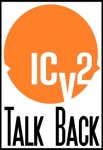 Retailer Kendall Swafford of Up Up & Away in Cincinnati, Ohio has been following the development of the digital marketplace for comics (see, for example, "Comics as Top-Level Category") and shares his thoughts on what it means for the evolution of the marketplace.
Retailer Kendall Swafford of Up Up & Away in Cincinnati, Ohio has been following the development of the digital marketplace for comics (see, for example, "Comics as Top-Level Category") and shares his thoughts on what it means for the evolution of the marketplace.I've been (like a lot of us have, I'm sure) giving this a lot of thought. Many want to draw parallels to the music industry and the move to digital music to what we fear is happening (or about to happen) with print. There are key differences, however. Changing the delivery method for music, which is what Apple did with iTMS, does not change the listening experience, the music is inherently intact (Audiophiles will argue different, but that's a quality issue and not applicable here). It certainly changed how and when and where we consume music, but not the music itself. Live performance > acetate > vinyl > tape (8-track/cassette/reel-to-reel) > CD > digital download. Listening to music is generally (not always) a passive experience. In the car, at work or home, exercising; music can be consumed while other tasks are carried out. Reading is an active experience, similar to, but not exactly like, consuming video content. Reading demands your full attention, it's active not passive, and being a visual medium, the delivery method is nearly if not fully as important as the content being delivered.
So... having said that, people will inevitably point to the troubles that the newspaper and magazine publishers are facing; that of dwindling readerships, circulation and ad revenue. The delivery method is outdated, simple as that. News depends on immediacy and portability. Until the Internet, having news printed cheaply, paid for by advertisers and thrown at your feet (literally!) was the quickest way to decimate urgent information. While television may have eroded readership of the newspaper, TV has never been portable, so it's never been the 'kill shot' for printed news. Immediacy+portability = the Internet. While the internet has only really been portable with the advent of the iPhone, the internet is within everyone's reach; home, work, school, library. And now, on-the-go, in your pocket. Everywhere, al the time.
Magazines are similar enough to newspapers to consider a similar argument. Wether entertainment, sports, politics, news or virtually any other topic, magazines are vehicles of information, wrapped in advertising, and pushed to the consumer. Changing the delivery method of information does not inherently change the information itself; I can still learn about great sex in Cosmo, the new Porsche in Motor Trend, or who the Republicans favor in 2012, wether its delivered on paper or on my iPad.
Comics Books are rather unique in the world of print, in that they are a creative visual medium. Of a standard size (or should be, imho) they're both collectible and portable, but they rely on a specific format to tell a sequential story. Has anyone tried reading comic books on their iPhones? It's a less than satisfying experience, because a comic book’s whole is far greater than the sum of its parts. Comic strips work as a series of panels presented individually, comic books just don't. I applaud David at ComiXology for making the best iPhone reader around, but it ultimately does a disservice to the stories themselves. Changing the delivery method in this case changes the reading experience.
Text novels, wether fiction or non-fiction, do not suffer the same fate by changing the delivery method, as they are (largely) black text on white paper, and the paragraph below is only dependent upon the one above it to continue the story, they have no visual dependency, unlike comic books. Obviously, the changing times do not bode quite as well for traditional booksellers, but we are a long, long way from wanting to give up bound books.
The iPad is a game changer. Portable and immediate. It is both the nail in the coffin and the savior of the newspaper industry. It will accelerate the death of the populist, general-interest magazine. And maybe I'm a head-in-the-sand kind of guy, but I believe it will be a terrific gateway drug for the comic book industry, if content is handled correctly and responsibly. Keep this in mind; the comic publishers have become masters at milking the same cow over and over again. Advertising covers their production nut, the periodicals are sold to retailers for guaranteed money, and then repackaged; hardcover > softcover > Absolute or Omnibus, and then online in many cases. We're guaranteed cash flow and are willing to buy the same editorial content several times. The direct market retailer is the closest thing to a sure bet. It's all pre-ordered and pre-sold. If the orders are too low, the product can be cancelled all-together!
Back to the iPad. Being one of the 20 top-tier categories in the iBookstore is not to be taken lightly. If content is used to engage the reader, it can be used to entice the reader to buy in print, and given our current purchasing arrangements in the industry, the publishers still have reason to drive readers to buy in print. So how can we best leverage the iPad in our stores? Can it somehow become another revenue stream? I'm not blind to the dangers ahead, but we're comic book store retailers. We live with danger!
How do we best exploit the digital onslaught? That's the question we need to be asking ourselves, and each other.
The opinions expressed in this article are solely those of the writer, and do not necessarily reflect the views of the editorial staff of ICv2.com.


